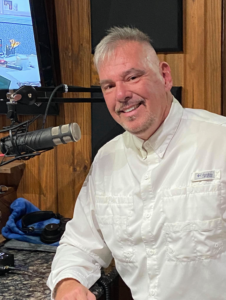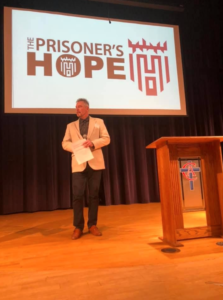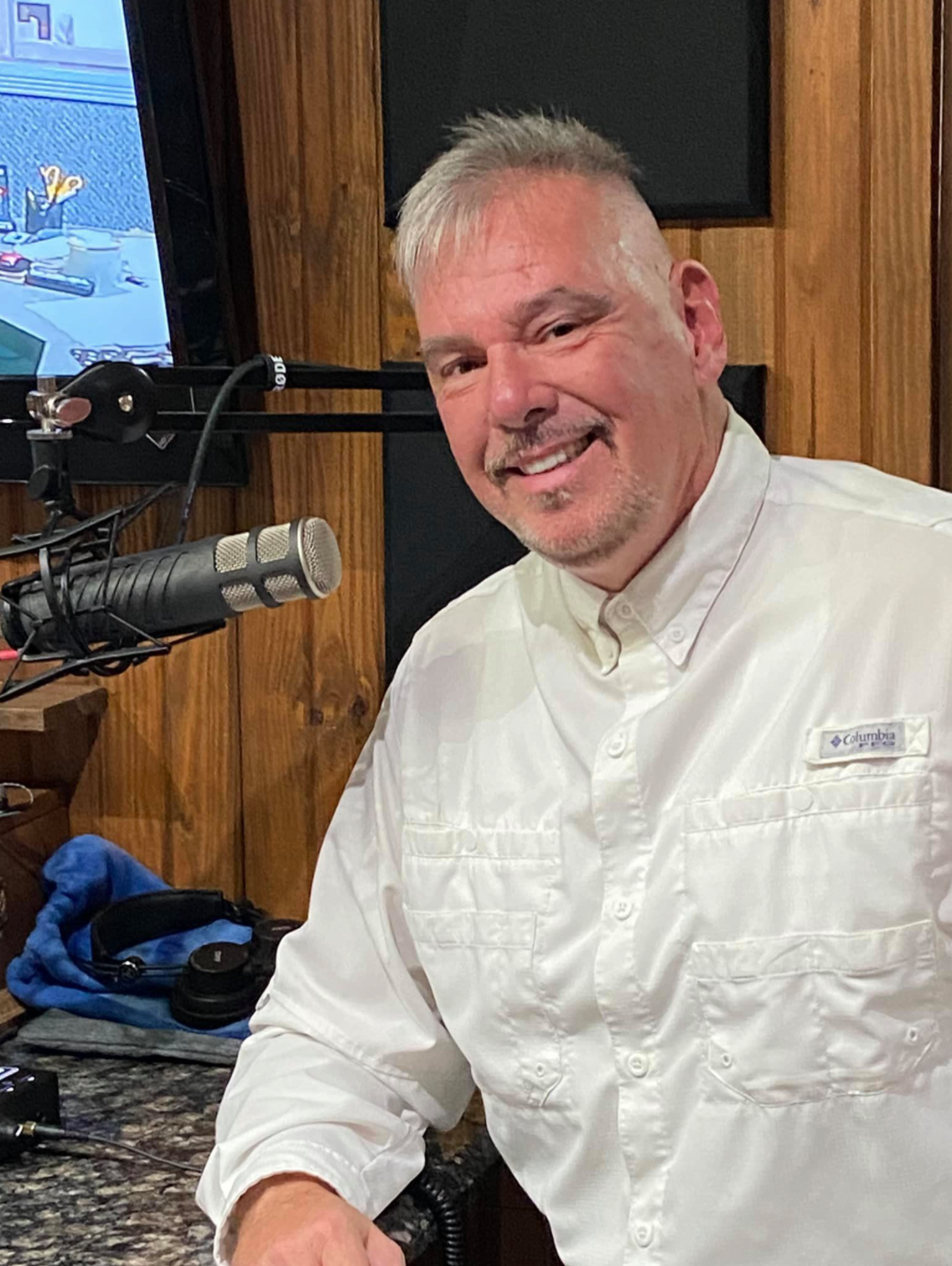Picking up the Pieces
The Prisoners Hope Provides Guidance and Mentorship
Writer / Julie Yates
Photography Provided
The Prisoners Hope seeks to support offenders as they progress through the phases of the prison system. The nonprofit organization not only advises individuals through a spiritual mentor program during the time they are incarcerated, but also provides guidance during the bond period as well as after completing a sentence. It also assists the traumatized families left behind. The end goal is to reduce the offenders chance of returning to prison, and restore families.
Founded by Darryll Davis, executive director, the organization is celebrating its 10th year of helping those who have served a prison sentence to seamlessly re-enter society. Davis knows firsthand what the process is like. In 1988 he was sentenced to 35 years in prison for murder. Through the counseling and spiritual support he received while waiting to be incarcerated, he feels he was being prepared to live a life of service to others.
 When I entered prison, I was led to seize every opportunity, he says. I got my GED, an associate in arts, a bachelors degree in theology, a masters degree in divinity, and a four-year degree through the American Association of Christian Counselors. I also completed vocational programs in masonry, carpentry, fiber optics and ServSafe, and became a certified senior trainer in Evangelism Explosion.
When I entered prison, I was led to seize every opportunity, he says. I got my GED, an associate in arts, a bachelors degree in theology, a masters degree in divinity, and a four-year degree through the American Association of Christian Counselors. I also completed vocational programs in masonry, carpentry, fiber optics and ServSafe, and became a certified senior trainer in Evangelism Explosion.
While I was in prison I saw that other inmates werent given any help and lacked direction, he continues. They werent encouraged to take advantage of opportunities and programs. I saw people that went down for mail every day, but never got a piece of mail. They had burned so many bridges. They needed to take ownership of what they had done. I started thinking, How would you like to come out with changed hearts?
While serving his prison term, Davis started to mentor other inmates. Some individuals directly asked him for help, and his name spread through word of mouth. While in prison he developed the D.A.N.I.E.L. Project, an inmate-led curriculum. In March of 2012, after serving 22 and a half years of his sentence, he was released. At first he worked two jobs in order to get back on his feet, but the seeds for The Prisoners Hope had been planted in his heart.
The ministry started in my basement, Davis says. The number of volunteers and mentees started to grow.
Today the organization continues to thrive as it provides important support to those willing to be mentored. Davis estimates the organization has around 157 volunteers. It serves 130 clients and 49 families while partnering with every prison in Kentucky. Four ministries work together within the organization – Pre-incarceration, Incarceration, Post-incarceration, and Children and Families. Each step requires full accountability from those being served.
The period of time before an inmate enters prison is very important. They need to prepare for what is ahead of them and how they will navigate their incarceration period. Having a mentor at this stage is crucial to enable a prisoner to make the most of any opportunities for growth going forward. Spiritual guidance, home visits and support groups can lessen the fear and anxiety of individuals and their families.
 The mentoring continues during the time clients are serving out their term. Completing a GED, taking part in life skill classes, and achieving at least one vocational certification is required. In addition, mentees must participate in moral reconation therapy, a cognitive-behavioral treatment system that leads to enhanced moral reasoning and better decision making.
The mentoring continues during the time clients are serving out their term. Completing a GED, taking part in life skill classes, and achieving at least one vocational certification is required. In addition, mentees must participate in moral reconation therapy, a cognitive-behavioral treatment system that leads to enhanced moral reasoning and better decision making.
We take our work seriously and we want them to do the same, Davis says. Some do drop off. They say they are not going to do the classes. But then I think of my favorite story. A little boy was throwing starfish that had washed up on shore. An old man came up to him, saying, Theres too many, you arent making a difference. The little boy continued and as he threw another one back he said, It made a difference to this one.
The process of walking with a client during the post-incarceration period is acutely needed to ensure a successful re-entry into the community. Besides continued counseling, practical things are provided. Individuals are given a cellular phone, the cost of the first months housing, a bus pass, clothing, and help with getting identification. Help in securing a job is also key.
I know there is a stigma out there and a reluctance to hire people who have been incarcerated, Davis says. A job is so important to making a transition to mainstream society, reducing the odds of prison recidivism and restoring families. Do employers know the cost for society if someone has to re-enter the system?
The final and extremely important piece is the support given to children and families. Counseling is provided for kids who have likely been traumatized and are feeling their parents stress. Classes on topics such as bill budgeting are offered. Mentors are assigned to help keep the families intact. The hope is that all involved will come out the other side much healthier.
The organization is funded through private donors, grants and fundraising events. Every bit helps, and many donations are made in amounts of $10 to $25. This spring two events are being held – the Kentucky Derby Fundraiser on April 28, and the Third Annual Fairways of Hope Golf Scramble on May 16. Information on donating and upcoming fundraisers can be found on the organizations website. The facility has an open-door policy. Visitors can walk in and see the good that results from the donations they give.
Just like other nonprofits, we need peoples time, talent and treasure, Davis says. We are always looking for volunteers and we could use three times as many as what we have now. We do our own training in-house and mentors receive a year of training before they go out on their own. As far as talent, we need peoples skill sets such as clerical and other abilities. For treasure, we are grateful for in-kind donations as well as money. Upon release, clients need items like furniture, clothes and phones. Its just too hard for individuals to reinsert themselves into society without all those pieces.
In addition to the four ministries, the organization also conducts a support group every Thursday night in the Fireside Room at Southeast Christian Churchs Blankenbaker Campus in Louisville. The group addresses the concerns of hurting families, mentees and post-incarcerated individuals. The atmosphere is nonjudgmental and everything shared is confidential. Counseling is offered and strengths are uncovered as participants talk about their struggles and their victories. Common ground is reached and encouragement is found during these sessions.
It is so rewarding to see someones life changed and families reunited, Davis says. Believing in someone and walking alongside them means everything.
Call 502-609-1013 or email info@theprisonershope.life for more info. Visit theprisonershope.life to donate or get details on upcoming events.






